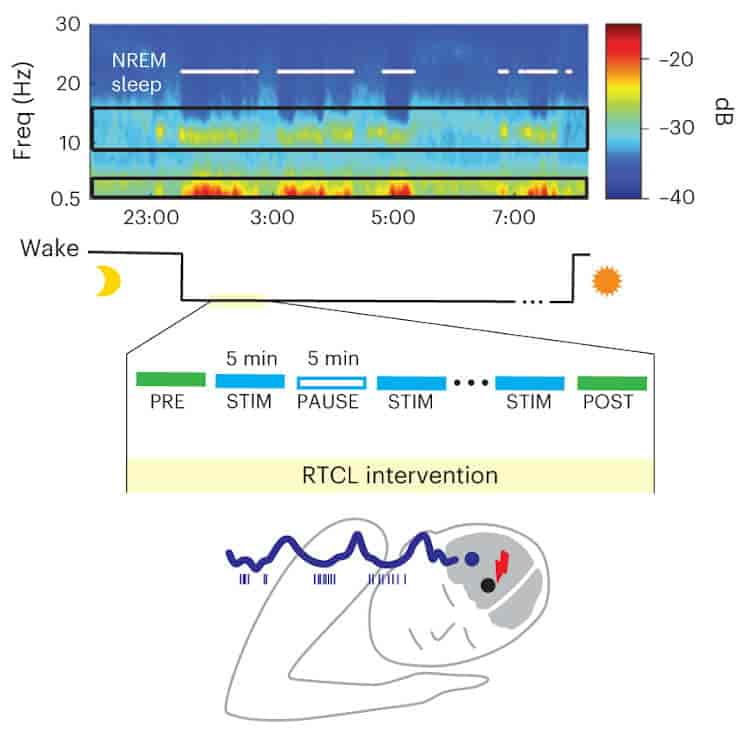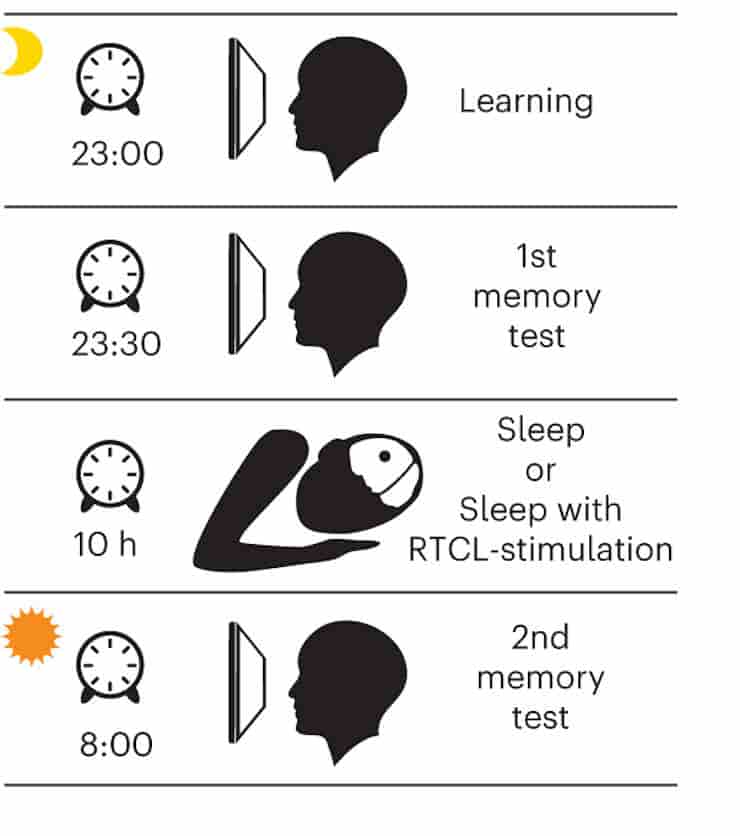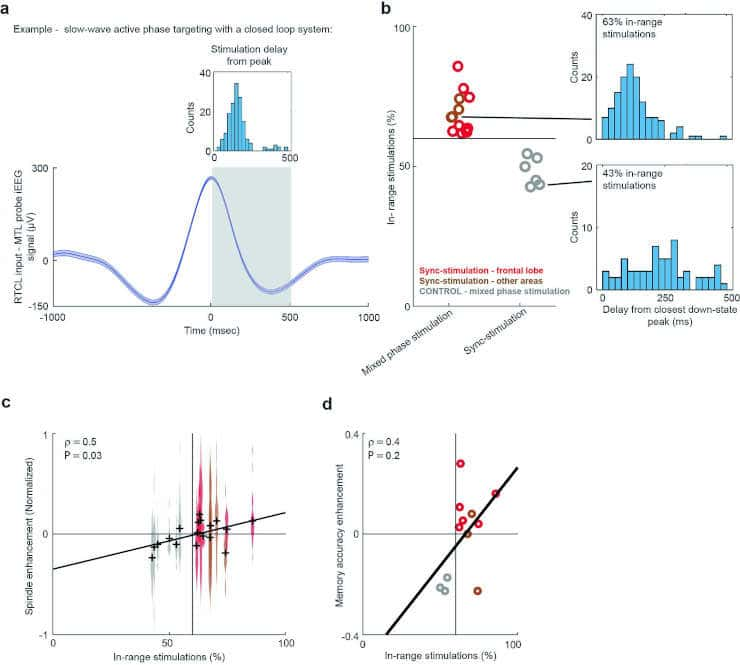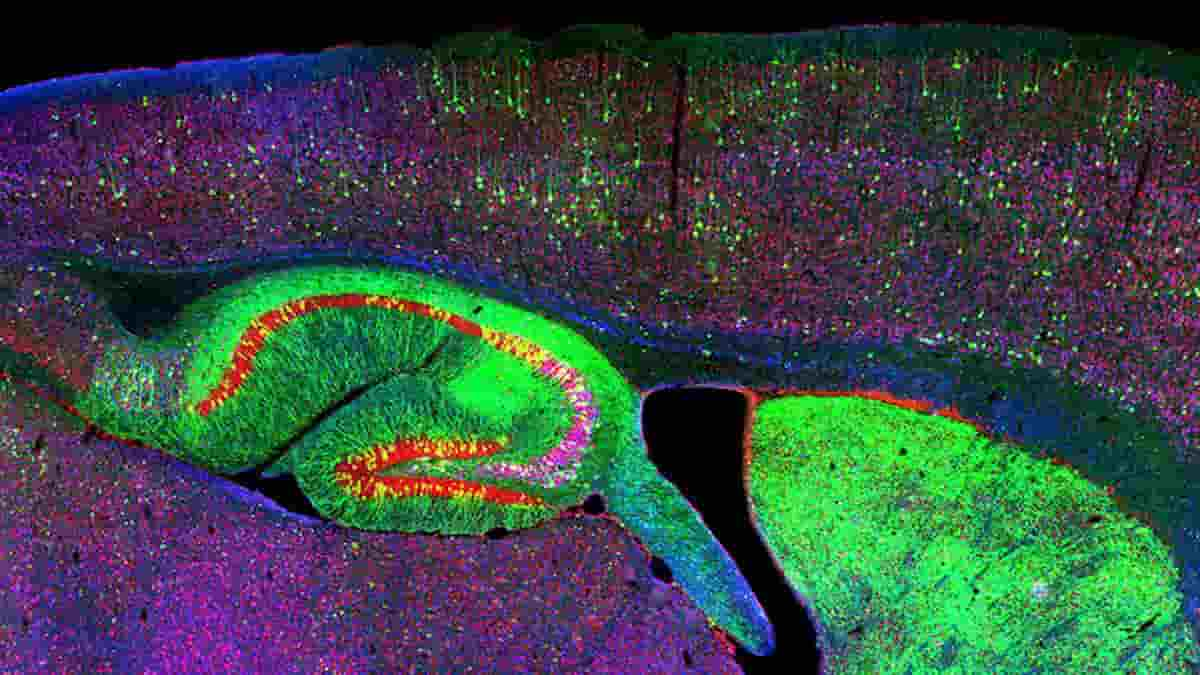New research led by scientists from UCLA Health and Tel Aviv University provides the first physiological evidence from within the human brain to support the prevailing scientific theory regarding how the brain consolidates memories during sleep. Furthermore, the researchers discovered that targeted deep-brain stimulation during a critical time in the sleep cycle appeared to improve memory consolidation.
According to study co-author Itzhak Fried, MD, Ph.D., the results may provide new information about how deep-brain stimulation during sleep might one day benefit patients with memory disorders like Alzheimer’s disease. The researchers used a novel “closed-loop” system that precisely synchronized electrical pulses in one brain region to brain activity recorded in another.
The work has scientific value in terms of understanding how memory works in humans as well as practical value in terms of actually improving memory. Although it is well-established that sleep aids in memory consolidation, the precise mechanisms by which this occurs while you sleep remain a mystery to scientists.
Slow Wave Sleep

Black rectangles mark slow-wave (0.5–4 Hz) and sleep spindle (9–16 Hz) frequency bands used for NREM detection (white dots).
Credit: Geva-Sagiv, M., Mankin, E.A., Eliashiv, D. et al. CC-BY
The dominant theory for how the brain converts new information into long-term memories during sleep involves an overnight dialogue between the hippocampus, the brain’s memory hub, and the cerebral cortex, which is associated with higher brain functions such as reasoning and planning. This happens during a deep sleep phase when brain waves are particularly slow and neurons across brain regions alternate between rapidly firing in sync and silence.
“This provides the first major evidence down to the level of single neurons that there is indeed this mechanism of interaction between the memory hub and the entire cortex,”
said Fried, professor of neurosurgery, psychiatry and biobehavioral sciences at the David Geffen School of Medicine at UCLA.
Fried published a study in the New England Journal of Medicine in 2012 that demonstrated for the first time that electrical stimulation can improve memory, and his research has since continued to investigate how deep brain stimulation can improve memory, now moving into the critical stage of sleep.
Celebrities and Animals
The researchers at UCLA Health had the rare opportunity to put electrodes into the brains of 18 epilepsy patients to test this theory of memory consolidation. During their average 10-day hospital stays, doctors implanted the electrodes in the patients’ brains to better pinpoint the cause of their seizures.

The research was carried out over two nights and mornings. Just before going to bed, study participants were shown photos of animals and 25 celebrities, including well-known names like Marilyn Monroe and Jack Nicholson. They were tested right away to see if they could remember which celebrity was paired with which animal, and they were tested again the next morning after a night of uninterrupted sleep.
Before bedtime on another night, they were shown 25 new animal and celebrity pairings. They were given targeted electrical stimulation overnight this time, and their ability to recall the pairings was tested the next morning.
Closed-loop Music Conductor
To deliver this electrical stimulation, the researchers devised a real-time closed-loop system that Fried compared to a musical conductor: the system “listened” to the brain’s electrical signals, and when patients fell into the deep sleep associated with memory consolidation, it delivered gentle electrical pulses instructing the rapidly firing neurons to “play” in sync.

When compared to a night of undisturbed sleep, each individual tested performed better on memory tests after a night of sleep with electrical stimulation. Key electrophysiological markers also showed that information was flowing between the hippocampus and the cortex, providing physical evidence for memory consolidation.
“We found we basically enhanced this highway by which information flows to more permanent storage places in the brain,”
Fried said.
“Our next challenge is whether we have the ability to modulate specific memories,”
he added. He also intends to investigate whether artificial intelligence can help identify and strengthen specific memories in the brain.
References:
- Geva-Sagiv, M., Mankin, E.A., Eliashiv, D. et al. Augmenting hippocampal–prefrontal neuronal synchrony during sleep enhances memory consolidation in humans. Nat Neurosci June 2023
- Nanthia Suthana, Ph.D., Zulfi Haneef, M.D., John Stern, M.D., Roy Mukamel, Ph.D., Eric Behnke, B.S., Barbara Knowlton, Ph.D., and Itzhak Fried, M.D., Ph.D. Memory Enhancement and Deep-Brain Stimulation of the Entorhinal Area. N Engl J Med 2012; 366:502-510 DOI: 10.1056/NEJMoa1107212
